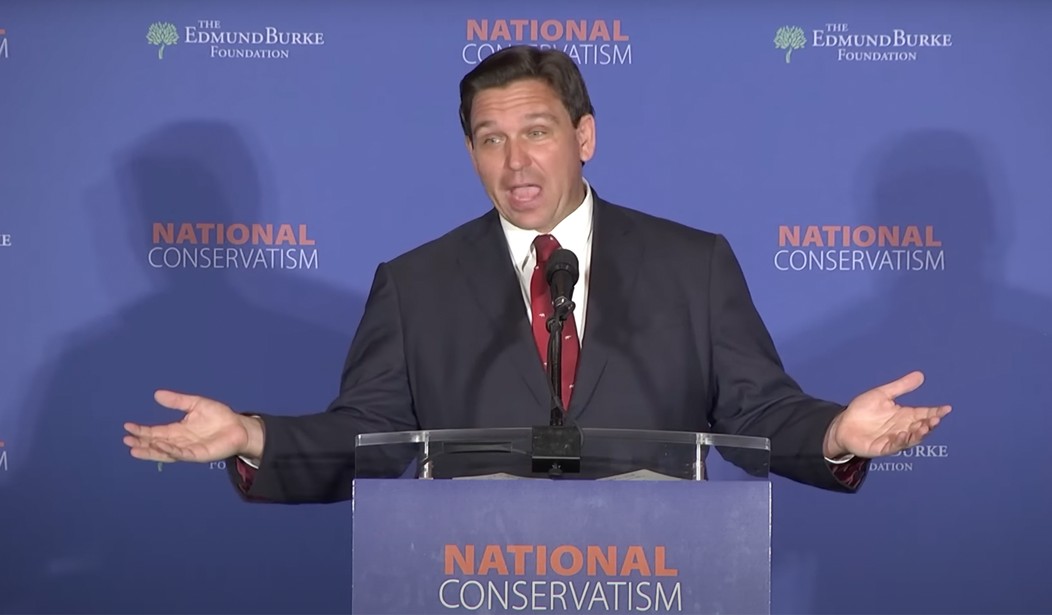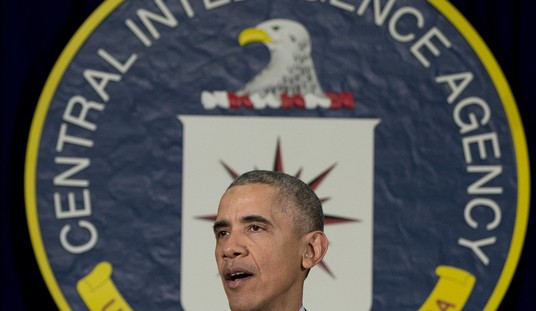Ron DeSantis is causing waves after answering a questionnaire on the conflict between Ukraine and Russia.
Fox News host Tucker Carlson sent the inquiry to all of the announced and presumed 2024 Republican presidential candidates, asking them what their views on the current war are. DeSantis bucked the establishment trend on both sides of the aisle and didn’t spew proclamations about defending democracy (which is definitively not why we are involved in Ukraine). Instead, he pointedly said it is not in US interests to become “further entangled” in the fight, which he described as a “territorial dispute.”
For context, here is Carlson sharing his statement on Monday evening.
“We cannot prioritize intervention in an escalating foreign war over the defense of our own homeland.”
WATCH: @TuckerCarlson reads Gov. @RonDeSantisFL’s full statement on Ukraine. pic.twitter.com/xv4CSBPGxo
— DeSantis War Room 🐊 (@DeSantisWarRoom) March 14, 2023
DeSantis’ words, which we’ll analyze in a moment, carried a lot of nuances for those willing to hear them. Still, they set off great consternation among the usual suspects. Here’s “conservative” David French and former RNC chairman Michael Steele clutching their pearls.
In 2015 DeSantis said “I think if we had a policy which…armed Ukraine with defensive and offensive weapons so that they could defend themselves, I think Putin would make different calculations.” This is the guy who aligned himself with the “Reagan school that’s tough on Russia”
— Michael Steele (@MichaelSteele) March 14, 2023
So is that right? Has DeSantis bent the knee to Putin? Let’s look at his words and see what he actually said compared to the hysterical proclamations of the neoconservative set.
DESANTIS: While the U.S. has many vital national interests – securing our borders, addressing the crisis of readiness within our military, achieving energy security and independence, and checking the economic, cultural, and military power of the Chinese Communist Party – becoming further entangled in a territorial dispute between Ukraine and Russia is not one of them. The Biden administration’s virtual “blank check” funding of this conflict for “as long as it takes,” without any defined objectives or accountability, distracts from our country’s most pressing challenges.
We have already pledged over $100 billion in military support to Ukraine. Only about half of that money has even been doled out at this point. What justification is there for the US to become “further entangled” in the conflict? The answer is quite obvious: There is none.
As a regional war, support for Ukraine makes sense as a way to degrade Russian military capability. Yet, further escalation directly works against US interests, both in regard to foreign policy and the world economy. The “as long as it takes” mindset is childish and naive. It ignores that war materials are finite, money is finite, and that every inch of Ukraine is not necessarily equal to the next. Should we allow Russia to overtake Kyiv? I don’t think so, but should we continue to shovel money into Ukraine so they can fight over territories that have been disputed since 2014? The answer should clearly be no.
DESANTIS: Without question, peace should be the objective. The U.S. should not provide assistance that could require the deployment of American troops or enable Ukraine to engage in offensive operations beyond its borders. F-16s and long-range missiles should therefore be off the table. These moves would risk explicitly drawing the United States into the conflict and drawing us closer to a hot war between the world’s two largest nuclear powers. That risk is unacceptable.
This is an argument I’ve been making for a while. It is one thing to provide Ukraine with defensive weapons and intelligence in order to help them hold back the Russians. It is another to start moving in weapons that only hold offensive value or that the Ukranians simply don’t have the command and control structure to use effectively. Ukrainian pilots are not going to learn how to effectively operate F-16s in a combined arms environment in just a few months. Normal transition training to an F-16 takes two years and most of the pilots in question can’t even read the manuals or cockpit labels. The reason Ukraine says it needs fighter jets is that Russia destroyed the ones it had. The same would happen if we sent fourth-generation F-16s into the fight.
DESANTIS: A policy of “regime change” in Russia (no doubt popular among the DC foreign policy interventionists) would greatly increase the stakes of the conflict, making the use of nuclear weapons more likely. Such a policy would neither stop the death and destruction of the war, nor produce a pro-American, Madisonian constitutionalist in the Kremlin. History indicates that Putin’s successor, in this hypothetical, would likely be even more ruthless. The costs to achieve such a dubious outcome could become astronomical.
Now, DeSantis is really speaking my language. The knee-jerk call for regime change whenever a foreign leader does something bad is incredibly short-sighted and dangerous. No call for regime change should happen without a thorough analysis of what the alternative would produce.
The best example of this was the call to oust Syrian President Bashar al-Assad during the Obama administration. Politicians on both sides of the aisle supported a policy of arming Islamic fundamentalists in an attempt to remove Assad. The result was hundreds of thousands of unnecessary deaths. Further, even if it had succeeded, it would have transformed the most secular nation in the Middle East into another sanctuary for Sharia Law.
That doesn’t mean Assad isn’t a dictator or that he’s not done really terrible things. What it means is that the world is not black and white. Calling for regime change may get the hawks drooling, but it is not a catch-all solution to every problem in the world. Another example would be the American-led overthrowing of Libya, a country that has now descended into absolute hell, including being the center of the modern-day slave trade.
We cannot prioritize intervention in an escalating foreign war over the defense of our own homeland, especially as tens of thousands of Americans are dying every year from narcotics smuggled across our open border and our weapons arsenals critical for our own security are rapidly being depleted
Perhaps I’m wrong, but I don’t think this is a losing message with Americans. They look around and they see absolute chaos everywhere. Holding a nuanced view of the conflict in Ukraine does not make someone pro-Putin. It makes them an adult who is able to soberly analyze what is best for the United States. On some level, they may mean continuing to provide arms to Ukraine. What it doesn’t mean is that we must continually describe the conflict as some kind of world war for “democracy” where no end game can be defined.
Lastly, this should once and for all put to bed the insane, baseless notion that DeSantis is somehow controlled by Paul Ryan and Mitch McConnell. People are more than welcome to support Donald Trump for the 2024 GOP nomination if that’s their prerogative, but just making things up isn’t a good long-term strategy. DeSantis is the most effective conservative politician of the last 40 years. He’s also no one’s puppet, and he’s shown that again and again. That doesn’t mean you have to vote for him, but it does mean that allegations to the contrary are laughable.














Join the conversation as a VIP Member